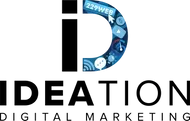Debunking Web Dev Myths: Fact vs. Fiction
In the ever-evolving landscape of web development, navigating through the myriad of information often feels like traversing a labyrinth of myths and misconceptions. In Breaking Down Web Development Myths Separating Fact from Fiction, we embark on a journey to demystify the prevalent misconceptions that surround this dynamic field. From the notion that web development is exclusively reserved for tech prodigies to the belief that one must master every programming language under the sun, these myths often deter aspiring developers from pursuing their passion. However, by dissecting these fallacies and shedding light on the truths that lie beneath, we aim to empower individuals to embrace the reality of web development with confidence and clarity. Through this exploration, we challenge preconceived notions, unveil hidden truths, and equip enthusiasts with the knowledge and understanding needed to embark on their own web development odyssey. Join us as we unravel the fabric of myths that shroud the world of web development and pave the way for a journey grounded in facts, innovation, and endless possibilities.
Dispelling the Myth of Overnight Success: The Reality of Web Development
Web
development is often portrayed as a field where success happens overnight. However, the reality is far from this misconception. Building proficiency in web development requires time, dedication, and continuous learning. It's not just about writing a few lines of code and launching a
website; it involves understanding various programming languages, mastering frameworks, and staying updated with evolving technologies. Success in web development comes from consistent effort, practice, and overcoming challenges along the way. Embracing the journey of growth and improvement is crucial, rather than expecting instant results. By dispelling the myth of overnight success, aspiring developers can set realistic expectations and approach their learning journey with perseverance and determination.

Unveiling the Truth Behind Coding Talent: Anyone Can Learn Web Development
There's a common misconception that coding talent is innate and reserved for a select few. However, the truth is that anyone can learn web development with the right resources, mindset, and dedication. Coding is a skill that can be acquired through practice and persistence, rather than being dependent solely on inherent talent. With the abundance of online courses, tutorials, and coding bootcamps available, individuals from diverse backgrounds and skill levels can embark on their journey to become proficient web developers. It's essential to recognize that learning to code is a process that requires patience and willingness to push through challenges. By understanding that coding talent is not limited to a privileged few, more people can feel empowered to pursue a career in web development and contribute to the tech industry.
Debunking the Notion of Perfect Code: Embracing Iteration in Web Development
In web development, there's a misconception that code must be flawless from the start. However, the reality is that perfection is rarely attainable, and code is often refined through iteration. Embracing the iterative nature of development allows developers to continuously improve their codebase based on feedback, testing, and real-world usage. It's normal for code to undergo multiple revisions and optimizations throughout the development process. By debunking the notion of perfect code, developers can prioritize functionality and efficiency while understanding that imperfections are opportunities for growth. Embracing iteration encourages collaboration, experimentation, and adaptation, ultimately leading to better
solutions and user experiences. In web development, the journey towards excellence is characterized by a willingness to iterate and refine code continuously.
Untangling the Complexity of Frameworks: Choosing the Right Tools for the Job
Frameworks are essential tools in web development, providing developers with pre-written code and structure to streamline the development process. However, navigating the landscape of frameworks can be overwhelming, with numerous options available for different purposes and preferences. Untangling the complexity of frameworks involves understanding their strengths, weaknesses, and suitability for specific projects. It's crucial for developers to evaluate factors such as scalability, community support, and learning curve when selecting a framework. By choosing the right tools for the job, developers can improve productivity, code maintainability, and overall project success. Rather than blindly following trends or sticking to familiar frameworks, developers should prioritize alignment between project requirements and framework capabilities. Untangling the complexity of frameworks empowers developers to make informed decisions and leverage technology effectively in their web development endeavors.
Exploring the Role of Design: Balancing Aesthetics with Functionality
Design plays a pivotal role in web development, influencing user experience, engagement, and brand perception. However, there's often a misconception that design is solely about aesthetics, neglecting its fundamental connection to functionality. Effective web design strikes a balance between visual appeal and usability, ensuring that form follows function. It involves understanding user needs, behavior patterns, and accessibility requirements to create intuitive and engaging interfaces. By exploring the role of design, web developers can collaborate with designers to integrate functionality seamlessly into the visual layout. Attention to detail, consistency, and responsiveness are essential aspects of design that contribute to a positive user experience across devices and platforms. Ultimately, successful web development entails harmonizing aesthetics with functionality to create compelling digital experiences that resonate with users.

Addressing the Fear of Failure: Embracing Mistakes as Learning Opportunities
Fear of failure can be a significant obstacle in web development, hindering progress and innovation. However, embracing mistakes as learning opportunities can transform setbacks into stepping stones towards success.
- Embracing a Growth Mindset: Cultivating a mindset that views failure as an essential part of the learning process fosters resilience and creativity.
- Learning from Experience: Reflecting on past mistakes helps developers identify areas for improvement and refine their skills over time.
- Experimenting Without Fear: Creating a supportive environment where experimentation is encouraged allows developers to take risks and explore new ideas without fear of failure.
- Iterating and Adapting: Embracing mistakes as feedback prompts iterative improvement, leading to more robust solutions and personal growth.
- Celebrating Progress: Recognizing progress, no matter how small, reinforces the idea that mistakes are opportunities for growth rather than reasons for discouragement.
By addressing the fear of failure and embracing mistakes as learning opportunities, developers can cultivate a mindset of continuous improvement and innovation in web development.
Breaking the Barrier of Technical Jargon: Making Web Development Accessible to All
Technical jargon can be intimidating and alienating, creating a barrier to entry for newcomers in the field of web development. Making web development accessible to all requires breaking down complex concepts into understandable language.
- Simplifying Terminology: Translating technical jargon into plain language helps beginners grasp fundamental concepts without feeling overwhelmed.
- Providing Clear Explanations: Offering concise and easy-to-follow explanations of technical concepts demystifies web development and empowers learners to dive deeper into the subject.
- Offering Learning Resources: Curating a diverse range of learning resources, such as tutorials, videos, and interactive platforms, caters to different learning styles and levels of expertise.
- Fostering Inclusive Communities: Creating inclusive spaces where individuals feel welcome to ask questions and seek support fosters a collaborative learning environment free from judgment.
- Encouraging Lifelong Learning: Promoting a culture of continuous learning encourages developers to stay curious and engaged, regardless of their background or level of experience.
By breaking the barrier of technical jargon and making web development accessible to all, we can democratize knowledge and empower individuals from diverse backgrounds to pursue their interests and aspirations in the field.
Conclusion
Navigating the realm of web development can be daunting, especially with the prevalence of misconceptions. However, armed with accurate information, you can confidently debunk these myths. Remember, a website is not just a digital placeholder; it's a powerful tool for business growth. By understanding the truth behind common misconceptions, you can make informed decisions that propel your online presence forward. Embrace the dynamic nature of web development, stay curious, and continue exploring new possibilities.
Ready to unleash the full potential of your website? Contact Ideation Digital Marketing today! Based in Charleston, WV, our team is dedicated to providing expert guidance and support to help you achieve your digital goals. Whether you're looking to revamp your current site or start from scratch, we're here to turn your vision into reality. Give us a call at (304) 814-2445 and take the first step towards a successful online presence.












